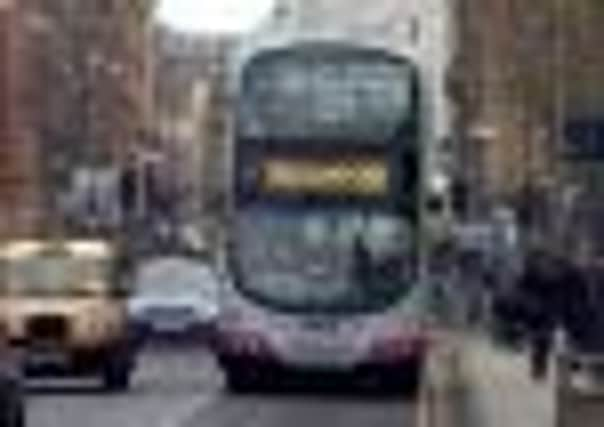Jayne Dowle: We’re missing the bus on proper public transport


At the weekend, she and her daughter ended up walking nearly a mile with a ton of food shopping between them. She’s a stoic sort, Michelle, and doesn’t drive anyway. It’s the fact that she has no control over what happens to “her” bus that makes her so angry.
For years now, decisions about public transport have been out of our hands. Ask the ordinary man – or woman – at the bus stop about who runs the bus service they have been standing there waiting for, and how this service is funded, and you will probably find that they haven’t got a clue.
Advertisement
Hide AdAdvertisement
Hide AdThe system is so complex and unaccountable that the buses might as well come from Mars. In fact, in some cases, they take so long to arrive, they probably do.
Now a major cross-party Transport Select Committee review of England’s bus services has found out officially what we have known for ages. Extensive cuts to rural, evening and weekend services are damaging the ability of many people – especially the old, young or disabled – to take part in employment, education or voluntary work and to access vital services such as hospitals and shops.
In some areas, according to c ommittee chairman Louise Ellman MP, “every scrap of funding has been withdrawn from subsidised bus services. In some cases, whole sections of the bus network have been scaled back with little or no proper consultation”.
I don’t remember this on any manifesto, do you? But although it is tempting to blame the massive public spending cuts introduced since May 2010, we should remind ourselves that it has been going on for years.
Advertisement
Hide AdAdvertisement
Hide AdWhoever has been in power, successive transport ministers have demonstrated a schizophrenic attitude towards buses; ramming a “green” transport policy down our necks, but at the same time overseeing the wholesale demolition of buses, which could provide a sensible alternative to the car, and instead, umming and ahhing over new trams in cities already well-served by public transport.
At least 70 per cent of local authorities have reduced funding for supported bus services in the past year or so, forcing most operators to withdraw services and/or push up fares. The committee concludes that this is the greatest financial challenge the English bus industry has faced for a generation.
Here in South Yorkshire we do have a bit of a nostalgic thing for the bus. Some of us have never got over the halcyon days when it cost 2p to get anywhere.
Obviously, this kind of massively-subsidised arrangement would be unsustainable with today’s economics, but as this review has found, fares are now far too expensive. Carol Vorderman would like this maths conundrum.
Advertisement
Hide AdAdvertisement
Hide AdIf it costs Jayne £1.90 to get to town and back on the bus to go shopping, or £1.40 to park her car (and on Saturdays it’s free), what option would be most cost-effective for Jayne? Even I can work that one out, and it took me three attempts to pass my Maths O-level.
What happens is that people like Jayne decide it doesn’t make any financial sense at all to wait around for a bus when they can hop into their car and be there in their own time.
So then, the clever people who run the bus company notice that fewer and fewer people are taking their bus, decide it’s not worth running one every hour, or indeed every day, and withdraw it. So no-one gets the bus any more. Literally.
I know that sounds simplistic. But anyone who has weighed up – as I have, on many an occasion – the pros and cons of taking a bus can do the logic. And I am lucky. I have a choice, because I can drive. Let’s not for a moment assume that everyone has a car, or access to someone with a car.
Advertisement
Hide AdAdvertisement
Hide AdSome people just don’t drive, like Michelle, or can’t drive because of a medical condition, like my husband, or are too poor or too elderly to learn. And many families, like us, only have, shock, one car. So if all of us can work this out, why can’t the bus companies and so many politicians, at both national and local level? Well, let’s be fair, they probably can. But too often, they choose to ignore the plain facts staring them in the face because tackling buses costs money and requires political stand-taking and negotiation at a level which they are not prepared to contemplate. Until now. Let’s hope.
Far more important to grand-stand about those high-speed rail links, which as far as I can deduce, would be very nice if we had nothing else to spend a few billion pounds on. Meanwhile, back at the bus stop, the news is gloomy. The cuts are likely to go even deeper next year as local authorities struggle to balance impossible books. It looks like it’s going to be an even longer walk home for my friend Michelle.